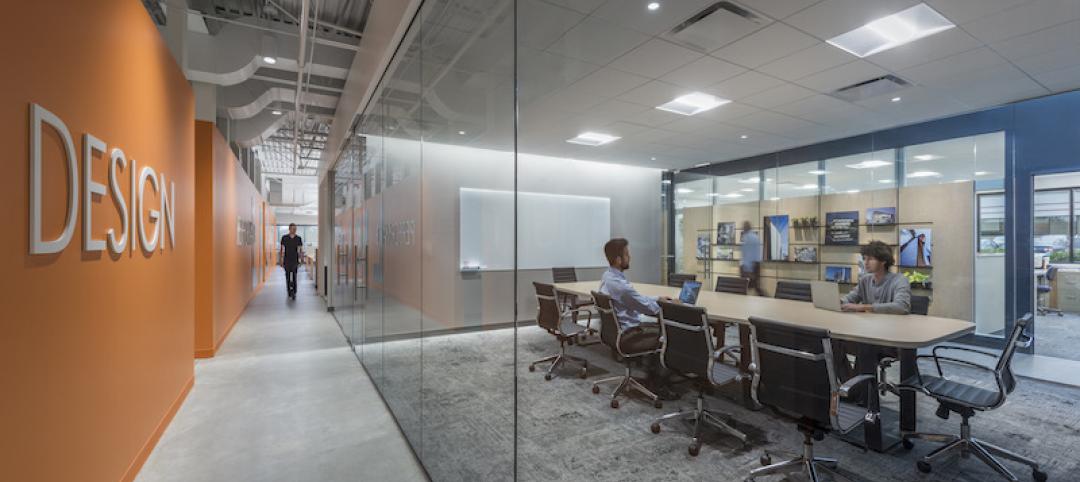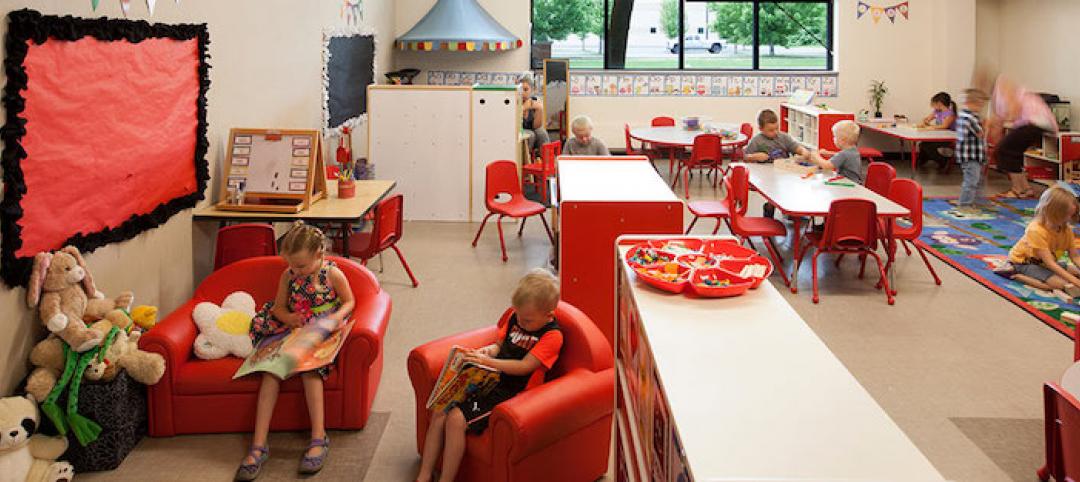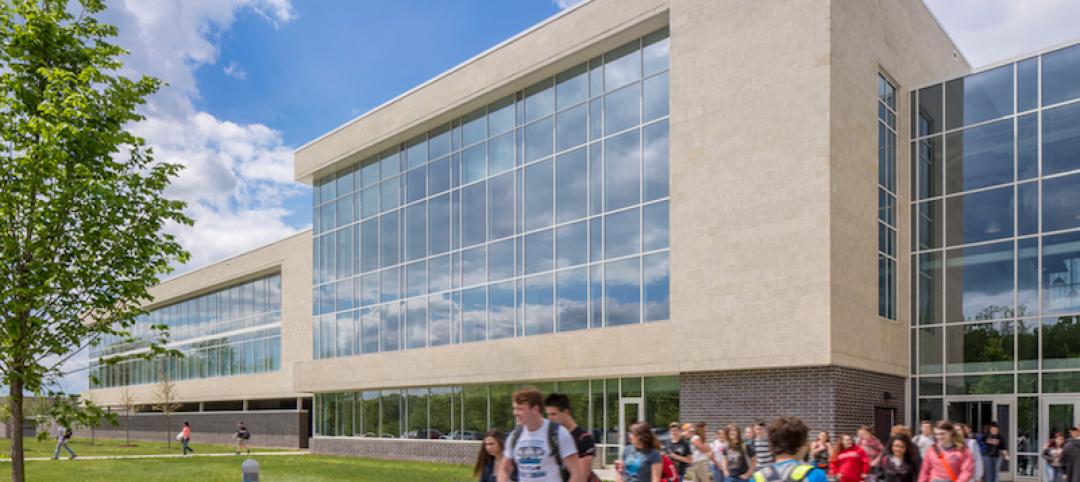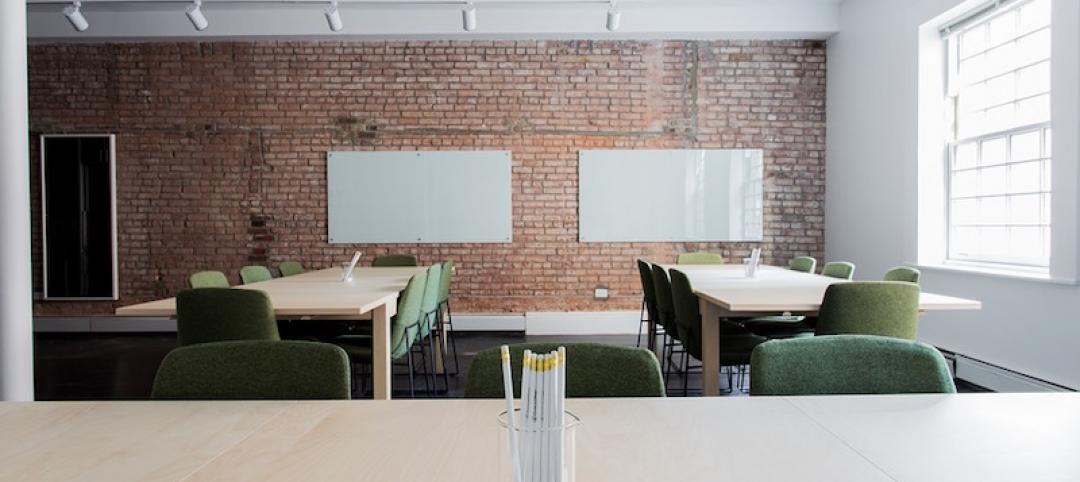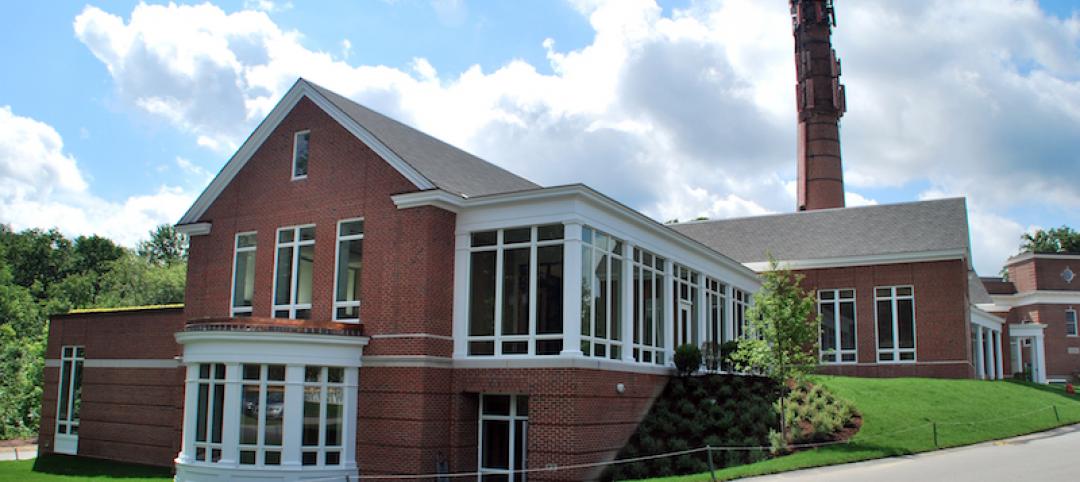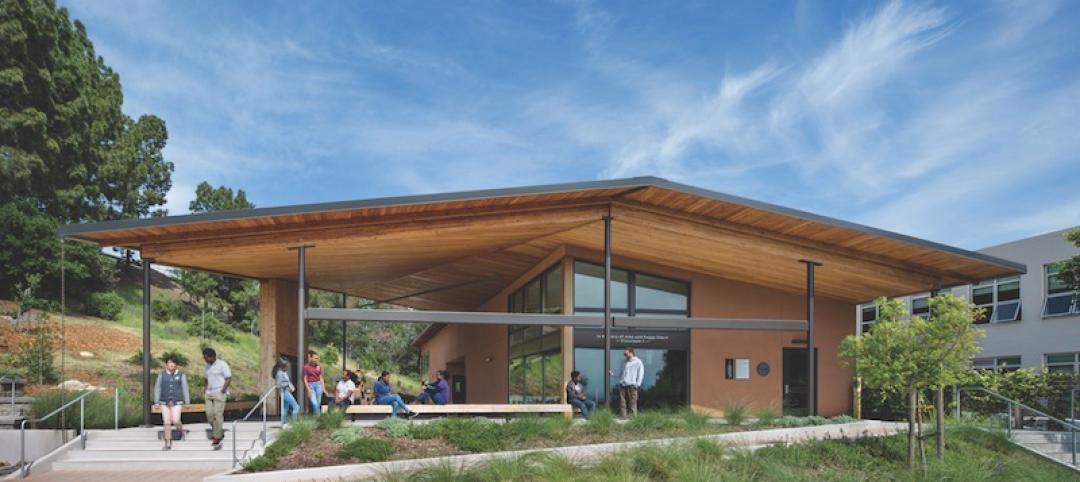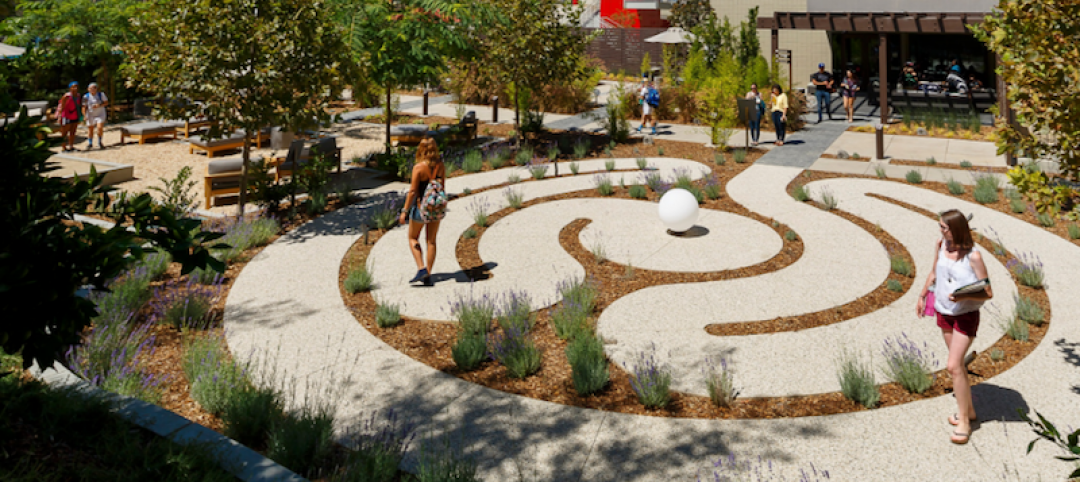 |
|
Students gather at the entrance to the new high school, which incorporates both new construction (above) and adaptive reuse of three vacant buildings. |
The story of the Trenton Daylight/Twilight High School is one of renewal and rebirth—both of the classic buildings that symbolize the city's past and the youth that represent its future.
The $39 million, 101,000-sf urban infill project locates the high school—which serves recent dropouts and students who are at risk of dropping out—within three existing vacant buildings. Twin, five-story structures that date to the early 20th century serve as bookends for the new campus, which also takes in a new three-story building and an open plaza in a secured courtyard.
The Building Team, led by general contractor Joseph Jingoli & Son and architect USA Architects, had to deal with existing buildings found to be structurally unstable and “squeezing” mechanical systems into the historic buildings. Working closely with the city and residents led to the inclusion of amenities like a 9,000-sf community room. The project also achieved a high level of community participation: 56% of construction dollars were awarded to minority- and women-owned companies, small business enterprises, or local companies.
“This high school project is very impressive,” said Walker C. Johnson, FAIA, principal with Johnson Lasky Architects, Chicago, and honorary chair of BD+C's Reconstruction Awards judging panel. “With Trenton being in a severely disadvantaged part of the country, the strong emphasis on high school education and rehabilitation of community buildings is extremely valuable.” —Dave Barista, Managing Editor
Related Stories
Giants 400 | Oct 6, 2017
Top 90 K-12 architecture firms
Stantec, DLR Group, and PBK top BD+C’s ranking of the nation’s largest K-12 sector architecture and AE firms, as reported in the 2017 Giants 300 Report.
Education Facilities | Oct 3, 2017
The growing demand for early childhood education
When the design of early learning centers is grounded in the science of developmental psychology and education, these educational environments can address multiple domains of development that positively stimulate young children's physical and cognitive growth.
K-12 Schools | Oct 2, 2017
A Houston office park gets a new life as a private day school
Shepley Bulfinch designed the 75,000-sf campus.
K-12 Schools | Sep 20, 2017
Activating innovation: Trends in K-12 education
School structures offer a unique opportunity as they can often double as community centers and serve as shelters in the event of an emergency or natural disaster.
Architects | Sep 19, 2017
What we talk about when we talk about placemaking
What does Good Growth mean and how do we set about achieving it?
K-12 Schools | Sep 12, 2017
Perkins Eastman publishes findings on high-performance schools
Metrics suggest correlation between key design strategies and occupant satisfaction and building performance.
Performing Arts Centers | Sep 11, 2017
19th century smokestack highlights a Massachusetts performing arts facility
CBT Architects and Windover Construction collaborated on the adaptive reuse project for Middlesex School.
K-12 Schools | Sep 8, 2017
The economic case for engaged classrooms in K-12 schools
Flexible, modern classrooms should be viewed as a key element of a sound financial strategy, producing a solid return-on-investment.
K-12 Schools | Aug 31, 2017
Environmental studies building highlights sustainability in every design element
The LEED Platinum and Zero Net Energy Verified building minimizes energy use via its site orientation.
K-12 Schools | Aug 18, 2017
How to create healthy learning environments with active design
Active design can be incorporated into any facility or campus with a few simple steps.


